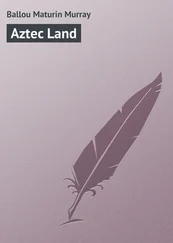Maturin Ballou - The New Eldorado. A Summer Journey to Alaska
Здесь есть возможность читать онлайн «Maturin Ballou - The New Eldorado. A Summer Journey to Alaska» — ознакомительный отрывок электронной книги совершенно бесплатно, а после прочтения отрывка купить полную версию. В некоторых случаях можно слушать аудио, скачать через торрент в формате fb2 и присутствует краткое содержание. Жанр: foreign_prose, на английском языке. Описание произведения, (предисловие) а так же отзывы посетителей доступны на портале библиотеки ЛибКат.
- Название:The New Eldorado. A Summer Journey to Alaska
- Автор:
- Жанр:
- Год:неизвестен
- ISBN:нет данных
- Рейтинг книги:5 / 5. Голосов: 1
-
Избранное:Добавить в избранное
- Отзывы:
-
Ваша оценка:
- 100
- 1
- 2
- 3
- 4
- 5
The New Eldorado. A Summer Journey to Alaska: краткое содержание, описание и аннотация
Предлагаем к чтению аннотацию, описание, краткое содержание или предисловие (зависит от того, что написал сам автор книги «The New Eldorado. A Summer Journey to Alaska»). Если вы не нашли необходимую информацию о книге — напишите в комментариях, мы постараемся отыскать её.
The New Eldorado. A Summer Journey to Alaska — читать онлайн ознакомительный отрывок
Ниже представлен текст книги, разбитый по страницам. Система сохранения места последней прочитанной страницы, позволяет с удобством читать онлайн бесплатно книгу «The New Eldorado. A Summer Journey to Alaska», без необходимости каждый раз заново искать на чём Вы остановились. Поставьте закладку, и сможете в любой момент перейти на страницу, на которой закончили чтение.
Интервал:
Закладка:
The State has been, and may well be, denominated the Eden of the North Pacific.
On our way we are constantly meeting immense freight trains, laden with grain, flour, cattle, and other merchandise, bound for the Atlantic coast; long strings of coal cars, winding snake-like round sharp curves, and creeping up steep grades; passenger vans crowded with animated, intelligent people, all together testifying to the great and growing traffic of the West and Northwest. We pass scores of lofty grain elevators, high piles of lumber, and miles of various kinds of merchandise prepared for, and awaiting, shipment eastward, all of which evinces a local capacity for production far beyond our computation. How marvelous is the change from the conditions existing in this region a few years since, when millions of buffaloes roamed unmolested over these plains, valleys, and hills from Texas to Manitoba! The skeletons of these herds still sprinkle the prairies, bleached by the summer sun and crumbled by the winter’s frost. Hundreds of carloads are annually shipped eastward to the factories which manufacture fertilizers.
As we speed on our western journey day and night, gliding through long tunnels and deep rock cuttings, over airy trestles, immense embankments, bridges, and viaducts, representing the skillful accomplishments of modern engineering, we carry along with us the domestic conveniences of home. The train, in fact, becomes our hotel for the time being, where we bathe, eat, sleep, and enjoy the passing scenery seated in luxuriously upholstered easy-chairs, which at night are ingeniously transformed as if by magic into soft and inviting beds. The elegance and comfort of these parlor, dining, and sleeping cars is calculated to make traveling what it has in a measure become, an inviting luxury. The miraculous cap of Fortunatus would seem to have been pressed into our service. So thoroughly perfected is the transcontinental railroad system that it is quite possible to enter the cars in an Atlantic city, say at Boston or New York, and not leave the train until five or six days have expired, when the objective point on the Pacific coast is reached.
While passing through deep gorges at night, or creeping over a mountain top, the effect from one’s seat in the cars is weird and curious, especially when the winding track makes long curves in the train, so that the panting iron horse is seen from the rear, all ablaze and emitting dense clouds of smoke. The snow-tipped peaks on one side and the threatening gulch of unknown depth on the other assume a mantle of soft, gauze-like texture in the clear moonlight. At times one half believes this rails are laid upon the tree-tops, the branches of which loom up so close to us. Away in the valley, two thousand feet and more below our level, a rippling stream sparkles in the silvery light while on its way to swell some larger watercourse which drains the rocky hills. Looking far across the valley we try to make out the distant mountains, but only dim phantoms of gigantic size are seen, gliding stealthily away in the darkness.
We make interest with the conductor and engineer of the train for a special purpose. We are in search of a new sensation, to wit, such as may be derived from a night-ride on the engine, where one can see all the engineer sees, which is indeed little enough. The headlight of the locomotive throws its rays dimly on the darkness for a few rods in advance of the train. But what does that amount to, so far as being able to avoid danger? That brief space is passed in a second of time, and it is impossible to see what is beyond. The faithful engineer stands with both hands upon the machinery, one with which to instantly apply the brakes, the other to shut off the steam if danger shows itself ahead. That is all he can do. What a boisterous, asthmatic monster it is that drags the long train through the darkness at the rate of a mile in two minutes! How its hot breath belches forth, and how it springs and leaps over the iron track, fed incessantly with fresh fuel by the stoker! To one not accustomed to the oscillating motion, it is nearly impossible to keep his footing, much more difficult than on board of a pitching or rolling ship at sea. The motion is short, quick, and incessant. Black, – black as Erebus; how venturesome it seems to dash into such darkness! What a tempting of fate! Yet how few accidents, comparatively, occur! “The law of averages is what we calculate upon,” said the engineer of No. – ; “about so many people will be killed annually out of a given number of railroad travelers. We take all reasonable precautions to prevent accidents, but there are thousands of exigencies beyond our control.” If any one proposes to you, gentle reader, to indulge in a night-ride on a locomotive, take our advice, and don’t do it.
One does not linger in bed when passing through a country famous for its scenery. The experienced traveler has learned that the opening hours of the day are those in which his best and clearest impressions are received. He therefore rises betimes to enjoy the cool, dewy freshness of the morning. Now and again a prairie-owl is seen groping its winged way to shelter from the increasing light. He is sure to see plenty of coyotes, gray wolves, and graceful antelopes on the rolling prairies, each of these animals exhibiting in some special and interesting manner its natural proclivities. The prairie-dog nervously diving into and leaping out of its little prairie mound; the wolf bravely facing and glaring at the passing train, though careful to keep at a wholesome distance; and the antelopes in small herds hastening away by graceful bounds over the nearest hills, far too pretty and far too ornamental to shoot, suggesting in form and movements that most picturesque of wild animals, the Tyrolean chamois.
Minnesota presents to the eye of the traveler a grand and impressive country in the form of rolling prairies, diversified by lakes, – of which there are said to be ten thousand in the State, – forests, and inviting valleys, the latter particularly adapted for raising wheat and for dairy farming. Vast fields of ripening cereals are seen stretching for miles on either side of the railroad, without a fence to break their uniformity. This State possesses among other advantages that of a climate particularly dry, invigorating, and healthful. Four hundred miles of our route is through Northern Dakota, where the farming lands are easily tilled, well watered, and wonderfully prolific in crops. The choicest wheat grown in America, known as hard spring wheat, comes from this section, which has been called “the granary of the world.” The gigantic scale on which wheat-raising is here conducted would seem incredible if faithfully described to an old-time New England farmer. The improvement which has been made in machinery connected with sowing, reaping, harvesting, and threshing grain enables one man to do as much in this western country as a dozen men could accomplish twenty-five or thirty years ago. There are wheat farms here embracing twenty thousand acres each, where economy in labor is of the utmost importance, and where the employees are so numerous as to be kept under semi-military organization. The author has seen the big grain-fields of Russian Poland in their prime, but they are as nothing when compared with those of Northern Dakota, nor are the farming facilities which are generally employed throughout Europe nearly equal to those of this country.
At Bismarck, capital of the State, which is a small but energetic and thriving place, the Missouri River is crossed by a magnificent iron bridge, hung high in air, which cost a million dollars. This is the acme of successful engineering, passing our long, heavy train of cars over a track of gleaming rails from shore to shore without the least perceptible tremor, or the deflection of a single inch. The great waterway which it spans measures at this place fully twenty-eight hundred feet from bank to bank, though it is at this point two thousand miles from its confluence with the Mississippi.
Читать дальшеИнтервал:
Закладка:
Похожие книги на «The New Eldorado. A Summer Journey to Alaska»
Представляем Вашему вниманию похожие книги на «The New Eldorado. A Summer Journey to Alaska» списком для выбора. Мы отобрали схожую по названию и смыслу литературу в надежде предоставить читателям больше вариантов отыскать новые, интересные, ещё непрочитанные произведения.
Обсуждение, отзывы о книге «The New Eldorado. A Summer Journey to Alaska» и просто собственные мнения читателей. Оставьте ваши комментарии, напишите, что Вы думаете о произведении, его смысле или главных героях. Укажите что конкретно понравилось, а что нет, и почему Вы так считаете.












